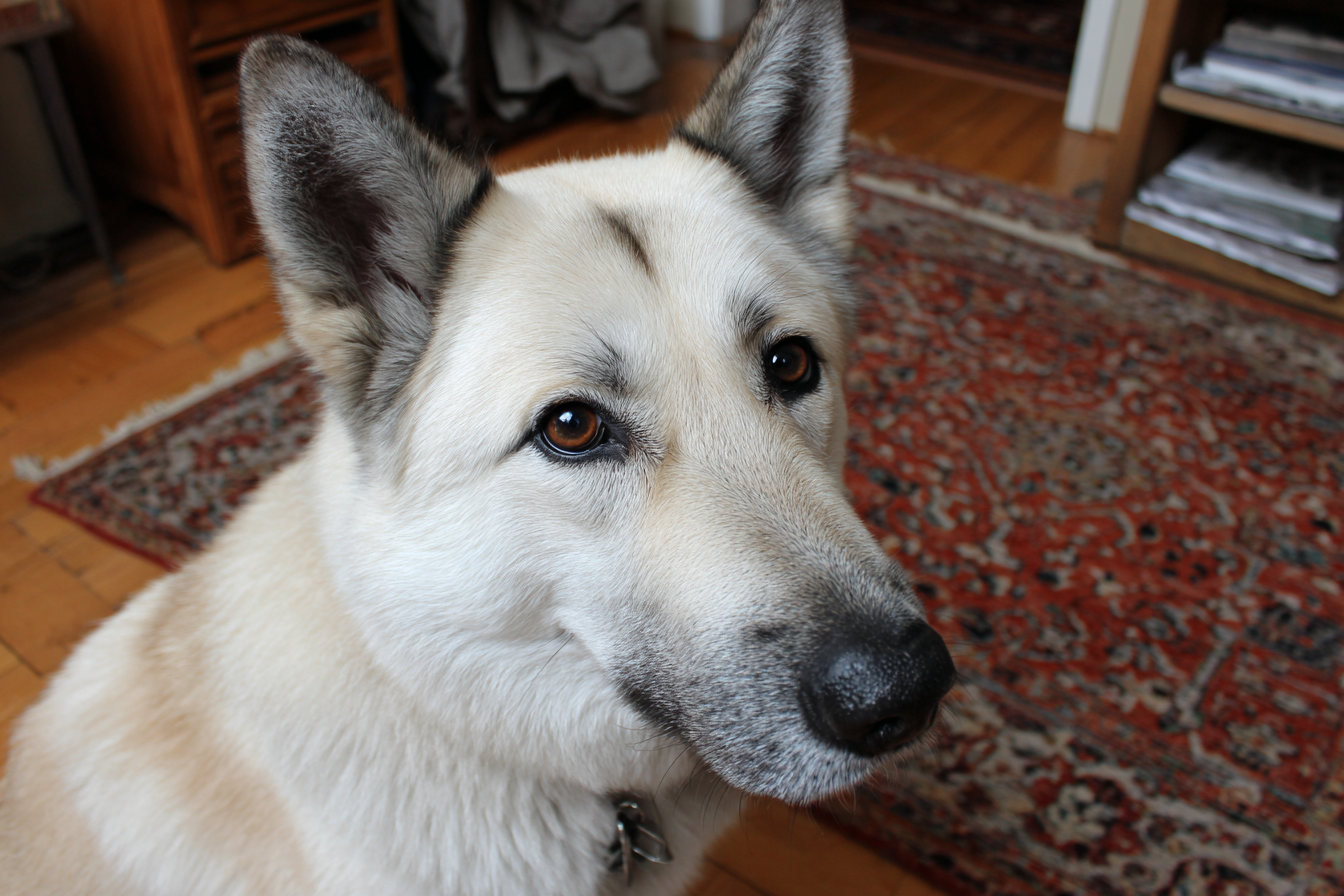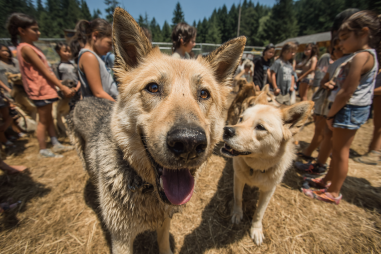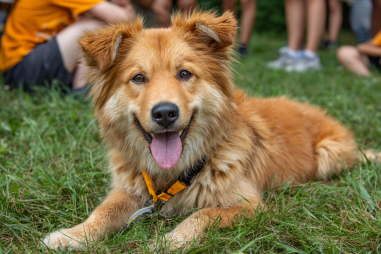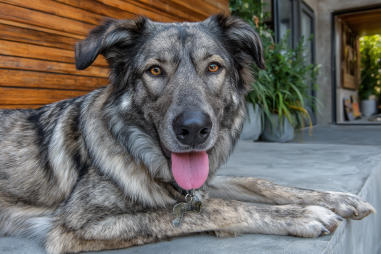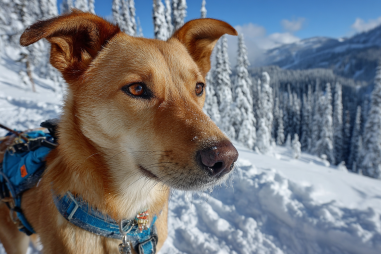Chinook dogs are known for their friendly nature and remarkable working ability, making them a wonderful companion for many families and outdoor enthusiasts. Despite their generally good temperament, like any dog breed, Chinooks can develop behavior problems if their physical and mental needs aren’t met or if early signs of issues are overlooked. Recognizing these common behavior problems and understanding how to manage them can help owners ensure their Chinooks grow to be well-adjusted, happy pets.
Typical Behavior Issues in Chinook Dogs
Although Chinooks are often described as gentle, intelligent, and eager to please, they are not immune to certain behavior problems. Some of the most frequently observed challenges include:
- Excessive barking: Chinooks can be quite vocal, especially if they are bored or not given enough stimulation.
- Destructive chewing: When left alone or under-exercised, they may resort to chewing furniture or personal items to relieve frustration or anxiety.
- Separation anxiety: Particularly because they are a social breed, Chinooks may become distressed when left alone for long periods.
- Digging: This instinctive behavior can become problematic if not directed appropriately.
- Jumping up on people: This is a common issue, especially in younger dogs who are excited to greet visitors.
Understanding these tendencies can help owners be proactive in shaping their Chinook’s behavior early on.
Causes and Early Warning Signs
Behavior problems don’t usually develop overnight. Often, there are underlying reasons and subtle warning signs that precede more serious issues. Some common causes include:
- Lack of sufficient exercise: Chinooks are an active breed that require daily physical activity. Insufficient exercise can lead to pent-up energy and frustration.
- Inadequate mental stimulation: Without engaging tasks or training, they may become bored which can trigger destructive or attention-seeking behavior.
- Social isolation: Chinooks thrive on companionship and can become anxious or depressed if left alone frequently.
- Inconsistent training and unclear boundaries: If owners do not establish consistent rules, the dog might become confused and test limits.
Some warning signs that a problem may be developing include restless pacing, whining or barking when alone, increased chewing or digging, and attention-seeking behaviors like jumping or pawing. Early recognition allows for timely intervention before habits become entrenched.
Training and Behavioral Modification Techniques
Addressing behavioral problems in Chinook dogs starts with consistent, positive training. Here are some effective techniques to consider:
- Positive reinforcement: Reward desirable behavior with treats, praise, or playtime. This encourages the dog to repeat good habits.
- Redirecting unwanted behavior: If your dog starts chewing something inappropriate, immediately offer a suitable chew toy instead, rewarding the switch.
- Desensitization and counter-conditioning: For issues like separation anxiety, gradually get your dog used to being alone for short periods, pairing your departure with tasty treats or toys.
- Consistency in commands and boundaries: Make sure all family members use the same cues and rules to avoid confusing your dog.
- Teaching alternative behaviors: For example, train your Chinook to sit calmly instead of jumping up when greeting people.
Patience and repetition are key when using training to modify behavior. Chinooks are intelligent and receptive but need clear guidance and encouragement.
When to Seek Professional Help
Some behavior issues might be too challenging to manage alone, especially if they are severe or worsening despite your best efforts. Consulting a professional dog trainer or a veterinary behaviorist might be necessary in these situations. Reasons to seek help include:
- Persistent aggression or fear-based behaviors
- Severe separation anxiety that leads to self-harm or property damage
- Unmanageable destructive behaviors despite exercise and training
- Complex multi-dog household conflicts
Professionals can provide customized behavior modification programs and guidance tailored to your Chinook’s individual needs, which often leads to faster and more effective results than self-management.
Environmental Adjustments to Reduce Problems
Modifying your dog’s environment can significantly reduce behavior issues by preventing triggers or redirecting energy in constructive ways. Some useful adjustments include:
- Secure and dog-proofed areas: Limit access to tempting but off-limits items to prevent destructive chewing or digging.
- Interactive toys and puzzles: Provide mentally stimulating toys that challenge your dog and keep them occupied.
- Comfortable crate or safe space: Many Chinooks find calm in a crate that is a cozy den-like environment.
- Consistent daily routines: Regular feeding, exercise, and training times promote a sense of stability and reduce anxiety.
- Access to appropriate outdoor spaces: A secure yard or frequent outdoor walks create opportunities to expend energy constructively.
These changes help prevent boredom and reduce stress, which are often root causes of behavior problems.
Importance of Exercise and Socialization
Proper physical activity and social interaction are foundational to preventing many behavior problems in Chinook dogs. Regular exercise helps to burn off excess energy that might otherwise manifest as hyperactivity or destructive actions. Chinooks were originally bred for sled work, so they naturally enjoy vigorous activity such as running, hiking, and playing fetch.
Equally important is early and ongoing socialization. Exposing your Chinook to a variety of people, animals, environments, and experiences in a positive way helps build confidence and reduces fear-related behaviors. Socialized dogs are less likely to develop reactivity or anxiety, making them more adaptable companions in everyday life.
Combined, exercise and socialization promote mental and emotional balance which directly influences positive behavior.
Encouraging Positive Behaviors for a Happier Chinook
Managing and preventing common behavior problems in Chinook dogs requires a thoughtful combination of training, environment, exercise, and socialization. By recognizing early warning signs and addressing them with consistent positive methods, owners can help their Chinooks lead balanced, fulfilled lives. Remember that patience and understanding are essential — these bright dogs thrive with love and guidance, repaying your efforts with loyalty and companionship.
By investing time in your Chinook’s mental and physical wellbeing, you foster not only good behavior but also a deep bond and lasting joy between you and your furry friend.

